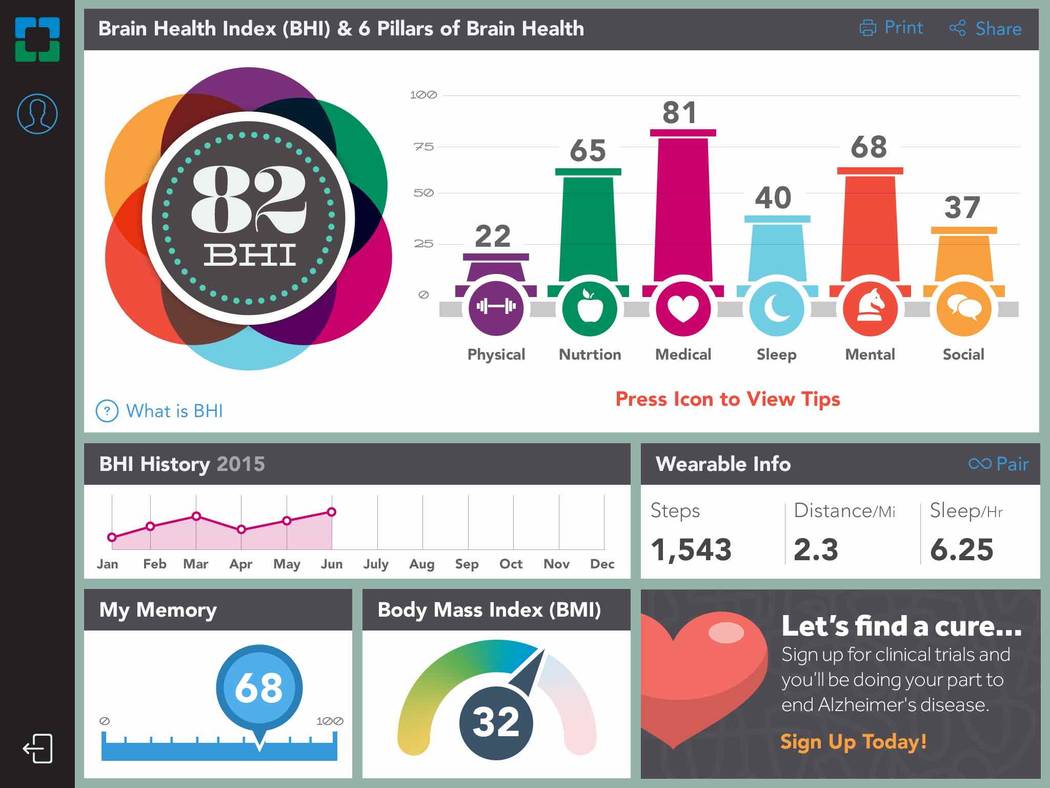Lou Ruvo Center to study how exercise affects the brain


The architecture of the downtown Cleveland Clinic Lou Ruvo Center for Brain Health is brilliantly designed by architectural ace Frank Gehry to resemble a scrambled brain that indicates dementia — an ever increasing problem in our society, especially as the population ages.
Many people are still confused as to exactly what goes on at the clinic in the battle against Alzheimer’s and here Dr. Charkles Bernick, the clinic’s associate director unlocks some of the mystery and explains why it’s never too late to add exercise to your daily routine.
……
The brain is a powerful organ in the body. It creates memories, drives emotion and controls every movement. This precious organ requires exceptional care throughout the duration of our lives to help us as we age and protect us from devastating neurological conditions such as Alzheimer’s and Parkinson’s disease.
Luckily, taking control of our brain health is relatively easy as there are several lifestyle factors that can improve brain health and lower the risk of disease.
At the Cleveland Clinic Lou Ruvo Center for Brain Health we refer to these factors as the six pillars of brain health and there is one, in particular, that is both good for your heart and your brain.
Do you have any idea what it is? I’ll give you a hint. It can add years to your life, help you lose weight, boost your mood, improve sleep, reduce the risk of disease and keep your brain and bones healthy. The answer: exercise!
If you haven’t incorporated exercise into your daily routine, don’t panic! It’s never too late to start and any exercise is better than none. While exercise greatly benefits your body, many people would be surprised to learn how great it is for your brain, too. Regular aerobic exercise such as running, riding a bike and swimming helps to preserve brain cells, while also fostering the growth of new ones.
In addition, exercise can improve blood flow and memory and stimulate changes in the brain that enhance learning, mood and thinking. In fact, a recent study published in the American Journal of Geriatric Psychiatry shows there is a positive link between long-term moderate physical activity and an increase in volume of the hippocampus region, which is the area of the brain that controls memory and is the first to be affected by Alzheimer’s disease.
While we know that exercise improves brain health, there are still some unanswered questions, including what kind of exercise is the best for your brain? We are hoping to answer this question with the Exercise in Adults with Mild Memory Problems trial. The multicenter, treatment trial is sponsored by the Alzheimer’s Disease Cooperative Study and is aimed at analyzing the effects of exercise in adults diagnosed with mild cognitive impairment.
During the 12-month study, participants at the Lou Ruvo Center for Brain Health will visit one of two designated Las Vegas YMCAs four times a week to participate in different types of physical exercise. Throughout the year, study-certified trainers will assess the effects of the exercises as they relate to participants’ cognitive function, which includes memory, reasoning, language and orientation.
The study is currently recruiting men and women ages 65 to 89 who have been diagnosed with mild cognitive impairment — that is, individuals experiencing memory impairment but still functioning independently.
Our two participating YMCA locations are in North Las Vegas at the Bill and Lillie Heinrich YMCA at 4141 Meadows Lane and Durango Hills Community Center YMCA at 3521 N. Durango Drive. Participation in research studies like this is necessary to speed up our ability to more effectively treat Alzheimer’s disease. Anyone interested in participating or learning more about the benefits of the study can call 702-483-6000 for more information, including how to enroll.
Remember, it’s never too late to take control of your brain health and exercise is a great way to get started! In addition to the study, the Lou Ruvo Center for Brain Health has a variety of free resources available to the public that offer education and guidance on how to maintain a healthy brain.
If interested in learning more about exercise as well as the other pillars of brain health, visit healthybrains.org, a free, interactive website that offers access to expert information, tools, dynamic content and measurements that allow individuals to take ownership of their brain health.












